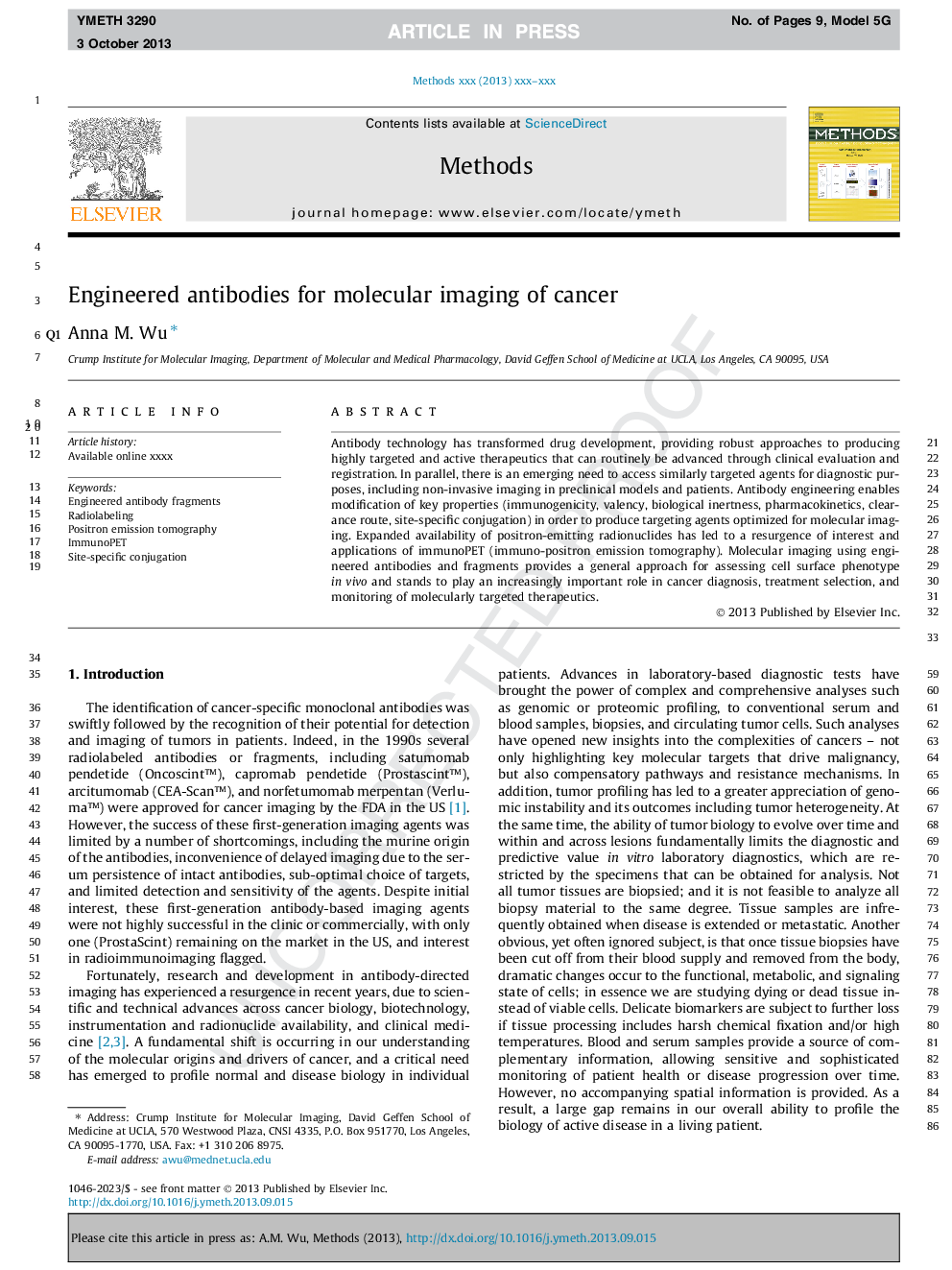| Article ID | Journal | Published Year | Pages | File Type |
|---|---|---|---|---|
| 10825837 | Methods | 2014 | 9 Pages |
Abstract
Antibody technology has transformed drug development, providing robust approaches to producing highly targeted and active therapeutics that can routinely be advanced through clinical evaluation and registration. In parallel, there is an emerging need to access similarly targeted agents for diagnostic purposes, including non-invasive imaging in preclinical models and patients. Antibody engineering enables modification of key properties (immunogenicity, valency, biological inertness, pharmacokinetics, clearance route, site-specific conjugation) in order to produce targeting agents optimized for molecular imaging. Expanded availability of positron-emitting radionuclides has led to a resurgence of interest and applications of immunoPET (immuno-positron emission tomography). Molecular imaging using engineered antibodies and fragments provides a general approach for assessing cell surface phenotype in vivo and stands to play an increasingly important role in cancer diagnosis, treatment selection, and monitoring of molecularly targeted therapeutics.
Related Topics
Life Sciences
Biochemistry, Genetics and Molecular Biology
Biochemistry
Authors
Anna M. Wu,
